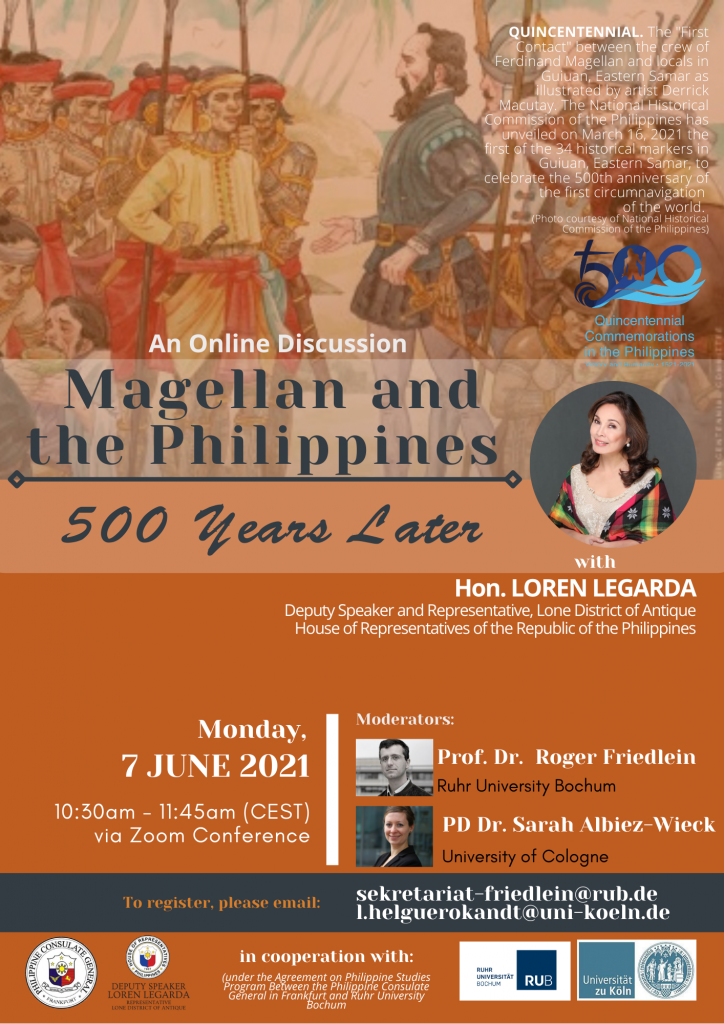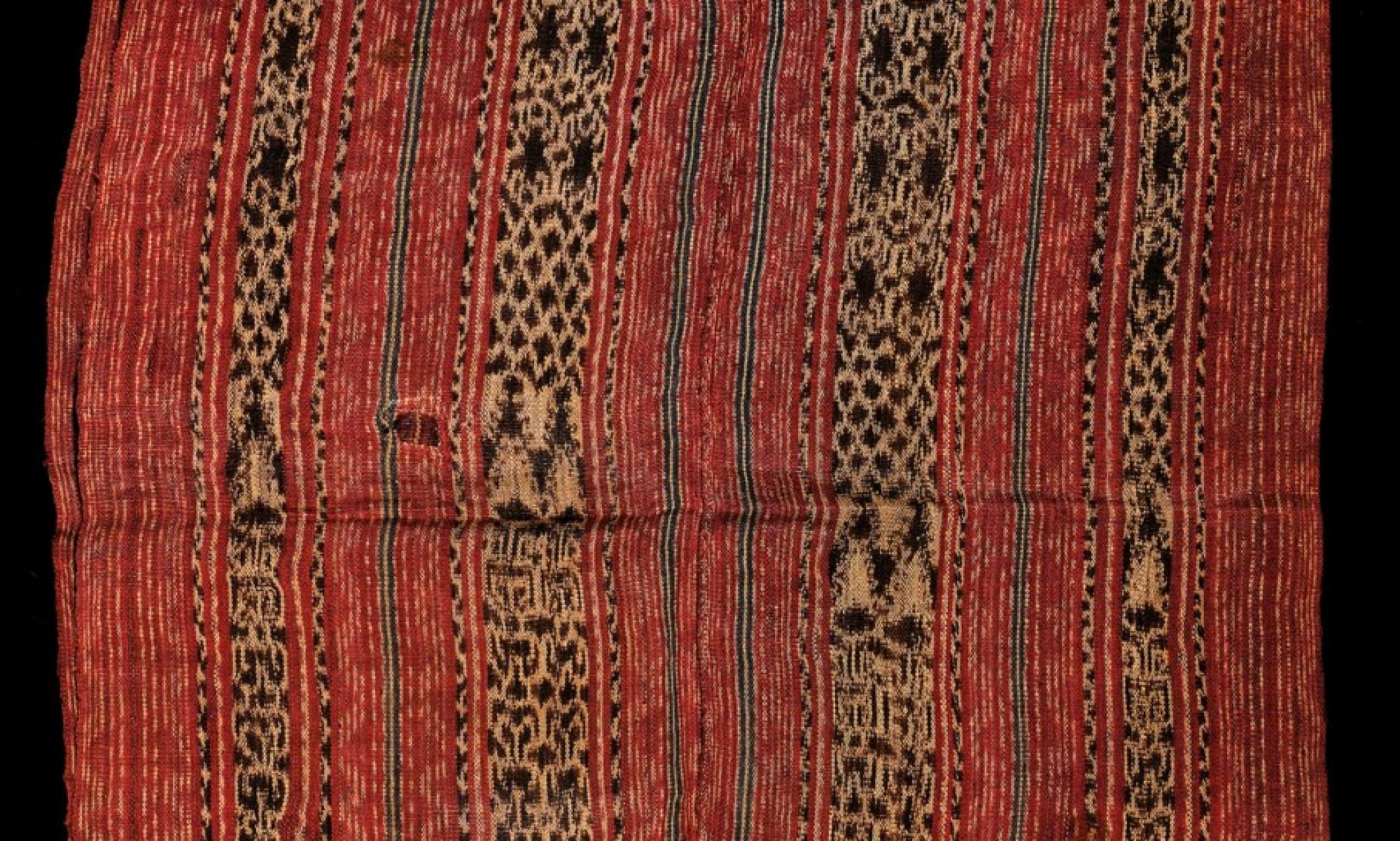Lecture by Deputy Speaker Hon. Loren Legarda: Magellan and the Philippines – 500 years later (7-Jun 2021, 10.30h – 11.45h MET)
The discovery voyages and the following colonial expansion of European powers –the monarchies of Portugal and Spain being the earliest ones – have been the object of exaltation and of criticism from their beginning. From the pivotal figure of Bartolomé de Las Casas, the debate about the legitimacy and the evolution of colonial expansion have given rise on the one hand to what has been called the leyenda negra (black legend) of Spain, as an example of a particularly devastating colonialism. On the other hand, the leaders of the first voyages Christopher Columbus and Vasco da Gama have been fashioned as polyvalent heroic figures that were used to cristallize national Hispanic and Portuguese identities.
From the 19th century onwards, the centenary commemorations of their voyages have been a major instrument to that goal, especially the fourth centenary of the Columbus voyage in 1892, which was celebrated in Spain with a long series of cultural, scientific and political acts that were organized with the participation of the independent Latin American countries, the USA and European neighbours, only a few years before the Spanish-American War in 1898 would put an end to most of what had been the Spanish colonial empire. While in the 1960s a new vision on the first encounters had already been established by Miguel León-Portilla in México under the catchy name of La visión de los vencidos (the vision of the vanquished), the Fifth Centenary in 1992 gave rise to an intense, sometimes polemical and ever-ongoing debate: Descubrimiento or encuentro? Discovery or encounter? Evangelización o genocidio? Evangelization or genocide? North and South American nations have found very diverging ways of commemorating the events that range between hispanismo, nacionalismo and indigenismo. In the year 2000, indigenous protest also accompanied the fifth centenary of the first voyage to Brazil by Pedro Alvares-Cabral, who is still celebrated as national hero in the country.
The voyage of Ferdinand Magellan – a Portuguese in the service of the Spanish crown –, Sebastián Elcano and Enrique de Malaca has been much less the object of national myth-making. Much more than that, Stefan Zweig’s short historical narrative “Ferdinand Magellan” (1927), very popular and often translated, has had a decisive share in the 20th-century shaping of Magellan as an individual hero, and his voyage as a Sternstunde der Menschheit (roughly, Highlights of mankind), which is the title of Zweig’s collection of five ‘stellar’ historical miniatures.
Since then, the evolution of post-colonial discourse has led to enrich the variety of perspectives on the voyages of Columbus, Da Gama, Alvares Cabral and Magellan. The Quincentennial activities in the Republic of the Philippines, but also in Spain, are another mark stone in the ever-developing interpretation of the historical encounter of East and West. Deputy Speaker Loren Legarda’s first hand information and her own contribution to a Philippine vision of the encounter will be of utmost interest for researchers and students.
Schedule: 7-Jun 2021, 10.30h – 11.45h MET
Lecture by Deputy Speaker Mrs Loren Legarda
Welcome by Prof. Sarah Albiez-Wieck (UC) and Prof. Roger Friedlein (RUB)
Presentation of Dept. Sp. LL, by RF and SAW
Lecture proper (40 min)
Open discussion with researchers and students (20 min)
Closing remarks by ConsGen Mrs Evelyn Austria Garcia
To register, please email: sekretariat-friedlein@rub.de

